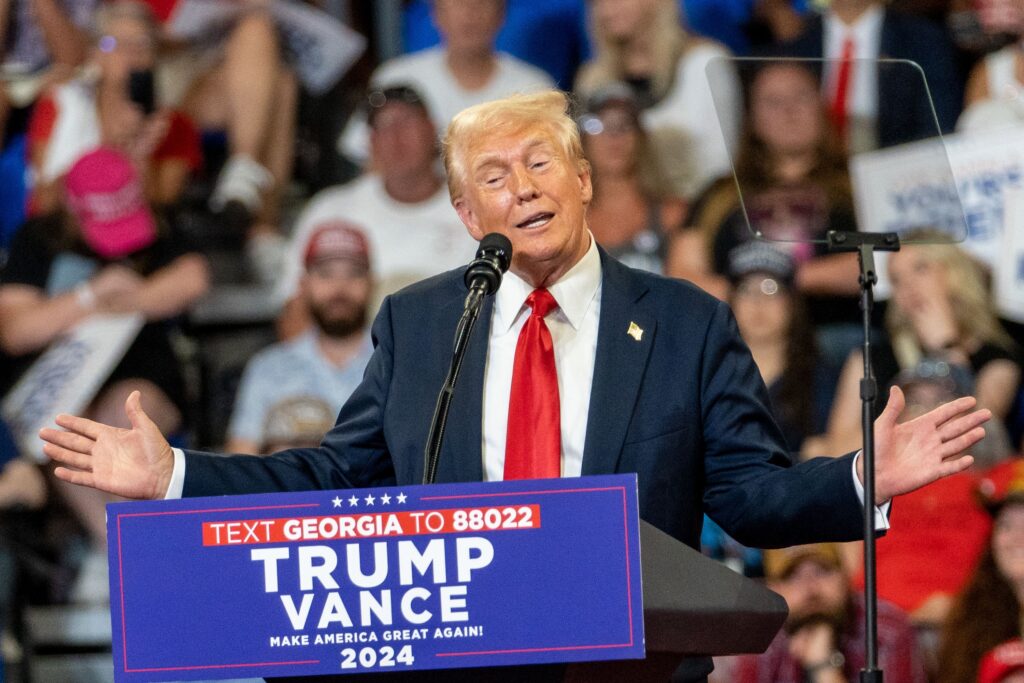Donald Trump has laid out several promises he aims to tackle immediately if he wins a second presidential term in 2024. Throughout his campaign, Trump has vowed to implement numerous initiatives “on Day One,” which includes issuing executive orders and replacing certain government officials.
Trump’s “Day One” agenda includes measures he can begin implementing without needing congressional approval, such as executive orders and personnel changes. For example, Trump has pledged to take immediate action on immigration, planning to initiate “the largest deportation force” in U.S. history. He also intends to curb the use of parole programs, which temporarily permit some immigrants to stay in the U.S. based on humanitarian grounds. In a bid to counter what he calls “migrant flights,” he has promised to ban such transportations. However, some of these actions, such as repealing birthright citizenship—a right protected by the 14th Amendment—are expected to face legal challenges.
Trump has also committed to targeting certain educational policies, such as “critical race theory” and promoting transgender issues in schools, with potential executive orders that would restrict such programs. This proposal is similar to a previous executive order under Trump that President Joe Biden revoked. Some of these proposed actions would likely face legal scrutiny.
Another significant part of Trump’s plan includes personnel changes within the federal government. Trump has expressed intentions to remove Special Counsel Jack Smith, who has been leading investigations into Trump’s alleged misconduct. Trump also stated that he would fire Gary Gensler, chair of the Securities and Exchange Commission, citing dissatisfaction from the cryptocurrency community over Gensler’s policies.
Moreover, Trump has suggested he may pardon individuals connected to the January 6 Capitol riot if they are “innocent,” a process he could initiate as early as his first day in office. While he has outlined ambitious economic promises like ending inflation on his first day, experts note that inflation control is primarily managed by the Federal Reserve, making it unlikely any president could unilaterally accomplish this. Trump’s trade policies, including potential tariffs, could even contribute to rising prices.
While some of Trump’s “Day One” pledges are feasible, others, particularly those impacting economic factors or policies tied to constitutional law, face legal or practical barriers that may delay or even block their implementation.
